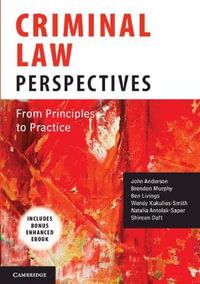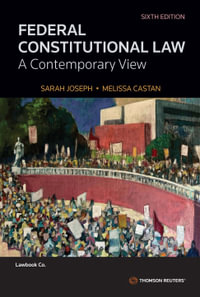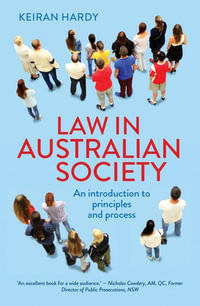In the past few decades, economic analysis of law has been challenged by a growing body of experimental and empirical studies that attest to prevalent and systematic deviations from the assumptions of economic rationality. While the findings on bounded rationality and heuristics and biases were initially perceived as antithetical to standard economic and legal-economic analysis, over time they have been largely integrated into mainstream economic analysis, including economic analysis of law. Moreover, the impact of behavioral insights has long since transcended purely economic analysis of law: in recent years, the behavioral movement has become one of the most influential developments in legal scholarship in general.
Behavioral Law and Economics offers a state-of-the-art overview of the field. Eyal Zamir and Doron Teichman survey the entire body of psychological research that lies at the basis of behavioral analysis of law, and critically evaluate the core methodological questions of this area of research. Following this, the book discusses the fundamental normative questions stemming from the psychological findings on bounded rationality, and explores their implications for setting the law's goals and designing the means to attain them. The book then provides a systematic and critical examination of the contributions of behavioral studies to all major fields of law including: property, contracts, consumer protection, torts, corporate, securities regulation, antitrust, administrative, constitutional, international, criminal, and evidence law, as well as to the behavior of key players in the legal arena: litigants and judicial decision-makers.
Industry Reviews
"This book offers a fresh view and overview of behavioural law and economics. It surveys the entire body of psychological research that lies at the basis of behavioural analysis of law and critically evaluates the core methodological questions." -- Journal of Consumer Policy
"Brilliant and comprehensive - and there's nothing like it. Zamir and Teichman have brilliantly illuminated numerous areas of the law, and made a major contribution, at once, to social science and legal studies. A phenomenal achievement." -- Cass R. Sunstein, Robert Walmsley University Professor, Harvard University, and Founder and Director of the Program on Behavioral Economics and Public Policy, Harvard Law School
"Academics acquire a taste for opposition. This may be good for building their careers. But for making the world a better place, structure and integration can be more important. This book is a perfect illustration. Two scientists at the cutting edge of their field synthesize what the law has to gain from blending behavioral insights with the rigor of economic thinking. Highly recommendable for academics and policy-makers alike." -- Christoph Engel, Director,
Max-Planck-Institute for Research on Collective Goods, Bonn
"This book provides one-stop shopping for anyone who wants to learn about law and behavioral economics from the ground up. Encyclopedic in scope, these sixteen chapters not only teach the predictable departures from neoclassically rational behavior, but also cashes out these positive predictions with normative policy implications across a host of legal domains." -- Ian Ayres, Townsend Professor, Yale Law School
"This book logically orders the potentially untidy assortment of observations about human behavior in legal settings. It thereby lifts the field of behavioral law and economics into greater prominence, even while serving as an excellent introduction to the field. It belongs on the shelf of every scholar, student, judge, and lawyer interested in understanding how law affects human behavior." -- Jeffrey J. Rachlinski, Henry Allen Mark Professor of Law, Cornell
Law School

























